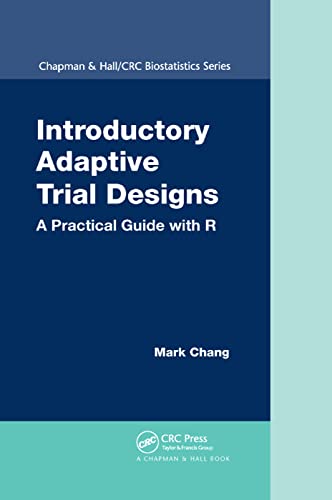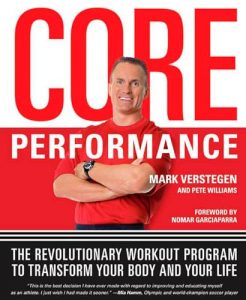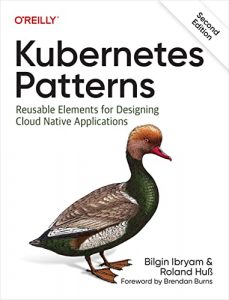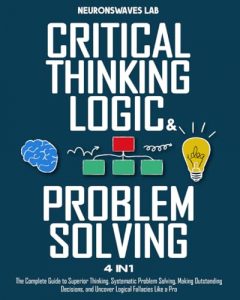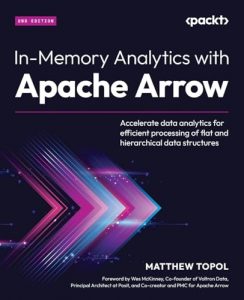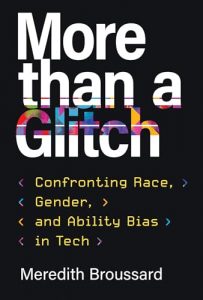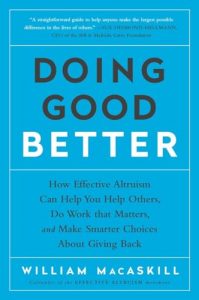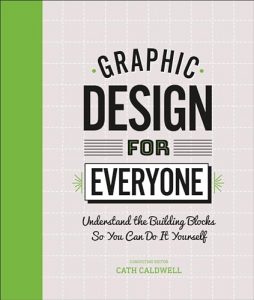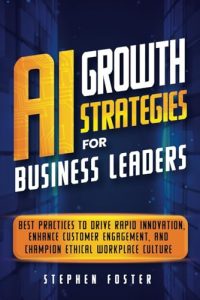1. Introductory Adaptive Trial Designs: A Practical Guide with R
Authored by Mark Chang, this book is a must-read for anyone involved in clinical trials or biomedical research. The text elegantly demonstrates how adaptive trial designs can enhance efficiency and decision-making processes in research. It delves into practical applications using R, ensuring that you not only understand the theory behind adaptive designs but also how to implement them effectively. The book balances technical knowledge with accessible language, making it suitable for both seasoned researchers and newcomers.

2. Clinical Trial Design: Bayesian and Frequentist Adaptive Methods
In Clinical Trial Design, Guosheng Yin offers a comprehensive exploration of both Bayesian and Frequentist methods, making this book a treasure for researchers looking to deepen their understanding of adaptive designs. The text covers a variety of adaptive trial designs used in current clinical practices, allowing readers to grasp both conceptual frameworks and real-world applications. Yin’s insights into the evolving landscape of clinical trials truly make this book an authoritative guide for practitioners in the field.

3. Introduction to Adaptive Trial Designs and Master Protocols
Just released in April 2023, Jay J. H. Park’s Introduction to Adaptive Trial Designs and Master Protocols provides a thoroughly modern perspective on clinical trial design. This title excels in elucidating the master protocol structure and adaptive designs, with an added focus on regulatory considerations. Park’s clear writing style and extensive examples foster a solid foundation for any researcher aiming to navigate this complex landscape with confidence.

4. Adaptive Code: Agile Coding with Design Patterns and SOLID Principles
Gary McLean Hall’s book on agile coding techniques introduces readers to the foundational concepts of software design principles through a practical lens. In a world where coding standards continuously evolve, this book equips developers with essential tools to create scalable and maintainable code. Hall’s dual authorship adds a rich dialogic element to the learning experience, making it an imperative read for aspiring and professional developers alike.

5. Design for a Brain; the Origin of Adaptive Behavior
William Ross Ashby’s Design for a Brain delves into the intersection of psychology and functionality of adaptive behavior. This book is essential for anyone interested in understanding how systems can adapt to their environment. Ashby employs a unique approach to explain cybernetic principles that govern behavior, making it a timeless piece for scholars and students in psychology, systems theory, and engineering alike.

6. Subject To Change: Creating Great Products & Services for an Uncertain World
This engaging read by Peter Merholz and his co-authors focuses on how organizations can thrive amidst uncertainty. By analyzing real-world case studies, the authors illustrate fundamental principles of adaptability in product and service design. The clear takeaways and inspiring methodologies solidify this book as an essential resource for entrepreneurs, designers, and business strategists looking to foster innovation and responsiveness in their offerings.

7. The Adaptive Design of the Human Psyche
Malcolm Owen Slavin and Daniel Kriegman explore a fascinating intersection of psychoanalysis and evolutionary biology in their book. This unique lens allows readers to understand the adaptive aspects of human psychology, making it a thought-provoking read for professionals in psychology and related fields. Their insights challenge conventional thinking and encourage critical discussions about the therapeutic process and human behavior itself.

8. Adaptive Sampling Designs: Inference for Sparse and Clustered Populations
This invaluable resource from G. A. F. Seber and Mohammad M. Salehi targets statisticians and researchers working with complex data structures. Their focus on adaptive sampling techniques provides a fresh perspective on data analysis strategies, equipping practitioners with methodologies for robust inference. With a clear layout and notable examples, this text is essential for those aiming to maximize the value derived from their data.

9. Adaptive Reuse of the Built Heritage
Bie Plevoets and Koenraad Van Cleempoel present compelling arguments and cases for the adaptive reuse of built heritage. This text is essential for architects, conservationists, and urban planners looking to balance development needs with heritage conservation. By highlighting real-life examples, the authors make a strong case for revolutionizing our approach to historic buildings, inviting readers to think creatively about how to adapt them for modern use.

10. Dynamic Branding: Responsive and Adaptive Graphics for Brands of Today
Victionary’s Dynamic Branding offers a contemporary perspective on branding that resonates with today’s fast-paced digital world. This visually stunning book discusses how brands are adapting their graphics to stay relevant and engaging. Packed with examples of innovative designs, it provides invaluable lessons for marketers and graphic designers aiming to navigate the ever-changing landscape of brand identity.


